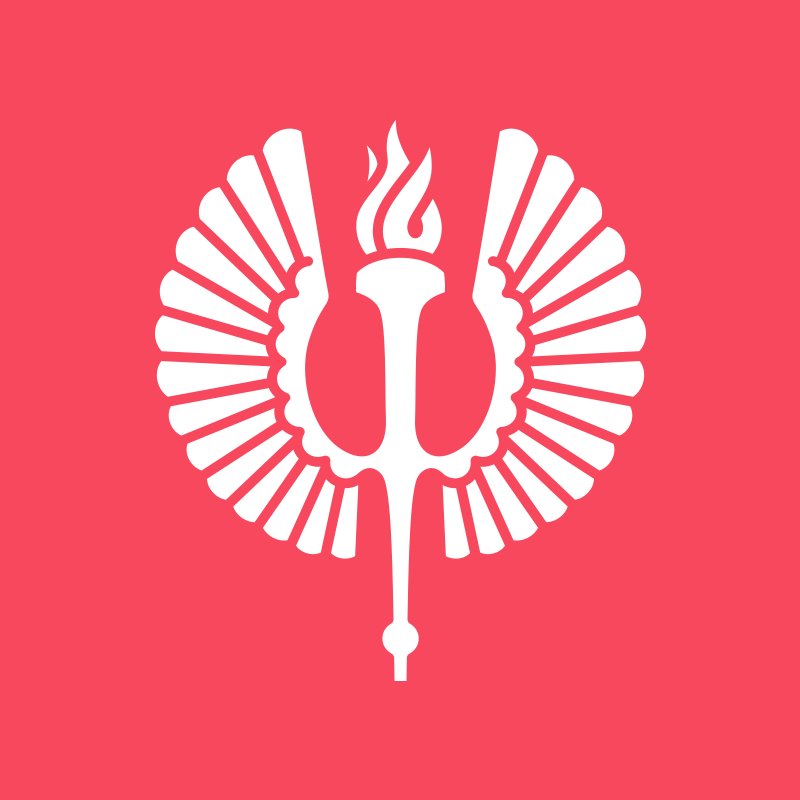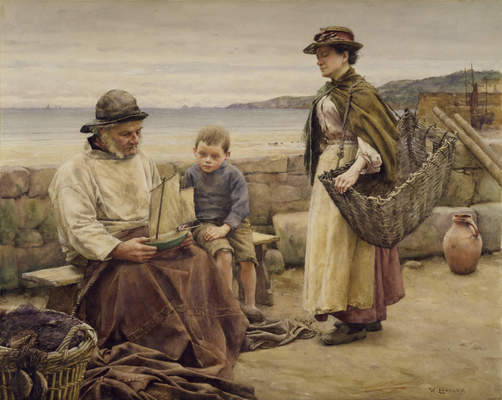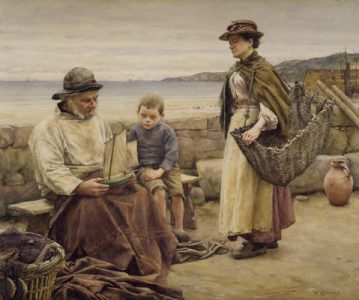Historical research on experts and expertise has burgeoned during the past decades. This research has shown the need to consider how expert knowledge is made and given meanings, the polarisation of expertise, the regional and cultural differences in defining expertise, the social statuses of experts, as well as the social and material networks that constitute the making and contestation of experts and expert knowledge.
This symposium brings together researchers from different backgrounds to present on-going research addressing the making of experts, expertise and expert knowledge in the history of science, knowledge and technology, intellectual history, and related fields.
The symposium programme (as of 25 August 2024) is available below (we reserve the right to changes).
If you wish to participate, please contact johanna.skurnik (a) utu.fi.
International Symposium on the Histories of Expertise, 19th-20th September 2024, University of Turku
Wednesday, September 18
18.00– Pre-symposium get-together at Panimoravintola Koulu (for symposium presenters only)
Thursday, September 19
All keynote lectures and sessions are at Arcanum, Faculty of Humanities, University of Turku (Arcanuminkuja 1).
9.30–10.00 Registration
10.00–10.15 Start of symposium (Room A112)
10.15–11.15 Keynote 1 (Room A112)
- Dr. Stephanie Olsen (Tampere University, Finland): Who’s an expert anyway? Examining the history of expertise from the perspective of an historian of children, emotions and experiences
11.15–11.45 Coffee break
11.45–13.15 Session 1: Humanities and expertise (Room A112)
- Otso Kortekangas (Åbo Akademi University, Finland): Alternative arenas of building scholarly expertise: the case of mid–twentieth century Arctic anthropology
- Elise Garritzen (University of Helsinki, Finland): Old–Fashioned Sages and Eccentric Savants: The Image of an Expert in Later Victorian Celebrity Interviews
- Marjaana Puurtinen (University of Turku, Finland): How is history made today? Interviews with academic historians, museum professionals and history students
13.15–14.15 Lunch (at own cost) on campus area
14.15–15.45 Parallel sessions 2 a & 2 b
Session 2a: Expertise and texts (Room A112)
- Mari-Liisa Varila (University of Turku, Finland) & Sara Norja (University of Turku, Finland): Skilful alchemists and expert astrologers: Evaluating expertise in early modern English texts
- Anna Runsio (University of Turku, Finland): Report on vivisection ‒ experts deciding on the treatment of research animals?
- Tinni Goswami (St. Xavier’s College, Kolkata, India): Bhaktisiddhanta Sarasvati Thakur and Saraswat Chatuspathi in the field of Vedic Astronomy in Colonial Bengal- A Case Study based on the Periodicals, Jyotirvid and Brihaspati and the Almanac, Bhaktibhavan or Nabadwip Panjika
Session 2b: Intersectionality and gender (Room A113)
- Eric Engstrom (Humboldt University, Germany): Intersectional Expertise: Juvenile Court Assistance in Imperial Berlin (1905–1914)
- Marja Rautaharju (Tampere University, Finland): A framework for analyzing early architectural accessibility expertise in Finland, 1975–1982
- Jutta Ahlbeck (Åbo Akademi University, Finland) & Hanna Lindberg (Åbo Akademi University, Finland): Child Expertise in Post-War Finland: Insights from Margit Törnudd’s Dissertation on Child Protection (1956)
15.45–16.15 Coffee break
16.15–17.45 Parallel sessions 3a & 3 b
Session 3a: Networks of expert knowledge (Room A112)
- Dejan Lukic (University of Oulu, Finland): The State-building and the Earth Sciences in the Nineteenth-Century Serbia
- Michael Corsi (The Ohio State University, United States): Natural Science and the Production of Knowledge in the Russian Urals in the Eighteenth and Nineteenth Centuries
- Sven Jaros (University of Halle, Germany / University of Birmingham, United Kingdom): Defining and Defying Expertise. Franciszek Duchiński and the Social Construction of Expertise within Imperial Entanglements – online
Session 3b: Medicine and sexuality (Room A113)
- Katariina Lehto (Tampere University, Finland): What constitutes medical expertise, and according to whom? Knowledge-based authority of the early eighteenth-century physicians in Sweden
- Riikka Taavetti (University of Turku, Finland): Experts of Sex: Constructing Expert Knowledge in Sex Research in Finland and Sweden, 1960s to 1990s
19.00– Dinner (for symposium presenters only)
Friday, September 20
All keynote lectures and sessions are at the Arcanum, Faculty of Humanities, University of Turku (Arcanuminkuja 1).
8.30–9.00 Registration
9.00–9.05 Start of day 2 (Room A112)
9.05–10.05 Keynote 2 (Room A112)
- Dr. Markku Hokkanen (University of Oulu, Finland): Mobile experts, expertise and contested knowledge: reflections on global, colonial and African medical history and historiography
10.05–10.30 Coffee break
10.30–12.00 Parallel sessions 4 a & 4 b
Session 4a: Psychiatry, emotions and expertise (Room A112)
- Daniela Munteanu (Central European University, Austria): Knowledge Production at the Bedside of Psychiatric Patients in a Late Nineteenth-Century Multi-Ethnic, Multi-Confessional and Socially Stratified Russian Empire
- Young Joo Hong (University of Turku, Finland): Depressed Nation: Emotional Culture of South Korea — Cultural history of depression and emotional experiences
- Edna Huotari (University of Helsinki, Finland): Establishing psychiatric expertise: nymphomania and gender in the 19th Century
Session 4 b: Post-WW2 and changes in expertise (Room A116)
- Reetta Humalajoki (University of Turku, Finland): Experts on Acculturation: the U.S. Bureau of Indian Affairs in the 1950s and 1960s
- Jiří Soukal (Masaryk Institute and Archives of the Czech Academy of Sciences, Czech Republic): The Role of Science and Scientists for the Rationalization of the Use of Energy Resources in Czechoslovakia, 1945–1968
- Věra Dvořáčková (Masaryk Institute and Archives of the Czech Academy of Sciences, Czech Republic): The expert role of scientists in post-war Czechoslovakia
12.00–13.15 Lunch (at own cost) at Yangtze restaurant
13.15–14.45 Session 5: Experts on the move (Room A112)
- Margaux Guigal (The Geneva Graduate Institute, Switzerland): A historical perspective on future expertise – The French movement of Prospective in the postcolonial 1970s
- Teemu Hakoniemi (University of Turku, Finland): Pushing Finnish expertise abroad – the case of energy and electricity sector in Egypt
- Mikko Toivanen (Freie Universität Berlin, Germany): Translating local practice into global knowledge – A.K. Cajander and colonial forestry – online
14.45–15.15 Final discussion and closing of the symposium (Room A112)
*
KEYNOTE SPEAKERS
Dr. Stephanie Olsen, FRHistS, is a Senior Researcher at the Centre of Excellence in the History of Experiences (Tampere University), previously at the Max Planck Institute for Human Development, (History of Emotions) (Berlin) and the Minda de Gunzburg Center for European Studies (Harvard University). She is author/co-author of Juvenile Nation: Youth, Emotions and the Making of the Modern British Citizen (Bloomsbury, 2014) and Learning How to Feel: Children’s Literature and the History of Emotional Socialization (OUP, 2014), the editor of Childhood, Youth and Emotions in Modern History (Palgrave, 2015), and the co-editor of the 6-volume Cultural History of Youth (Bloomsbury, 2023). She co-edits the journal History of Education. Her research currently focuses on the ‘Lived Nation’ in the context of the British Empire, specifically children’s (informal) education in the context of the First World War and the ‘limits’ of those experiences, including children’s stories and dreams.
Dr. Markku Hokkanen (PhD, University of Jyväskylä 2006) is a Senior Lecturer in History at the University of Oulu and Docent in General History at the University of Jyväskylä. He specializes in histories of medicine and health, colonialism and British empire (especially in the Malawi region). His publications include the monograph Medicine, mobility and the empire: Nyasaland networks, 1859–1960 (2017) the co-edited collection Healers and Empires in Global History: Healing as Hybrid and Contested Knowledge (2019) and the collaborative monograph on histories and memories of Finnish development work (Kehitysyhteistyön mieli ja mielettömyys, 2023). He is currently co-editing a volume on healers and politics in African history, based on an Academy of Finland-project he led in 2019-23. Hokkanen’s research interests include cultural, social and intellectual history of medicine, imperial and colonial history, historiography and historical methodology.
Organizers:
Dr. Juha Haavisto, European and World History, University of Turku
Dr. Ranjana Saha, European and World History, University of Turku
Dr. Johanna Skurnik, European and World History, University of Turku
Image: Walter Langley, Expert opinion, Birmingham Museums Trust, Wikimedia Commons.


